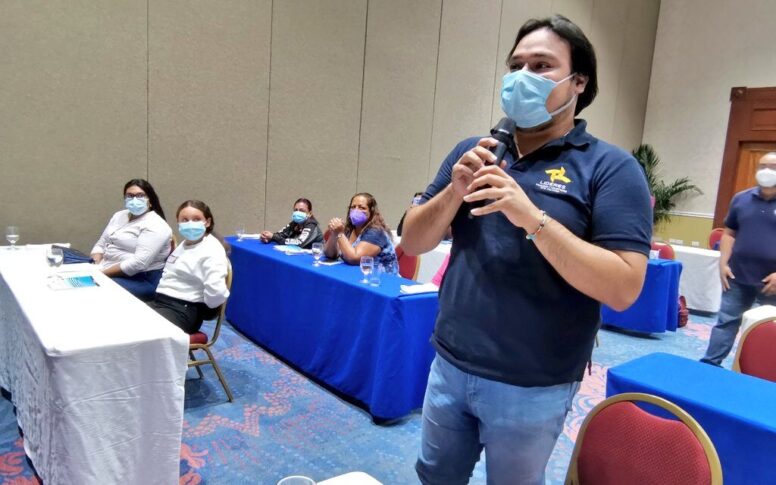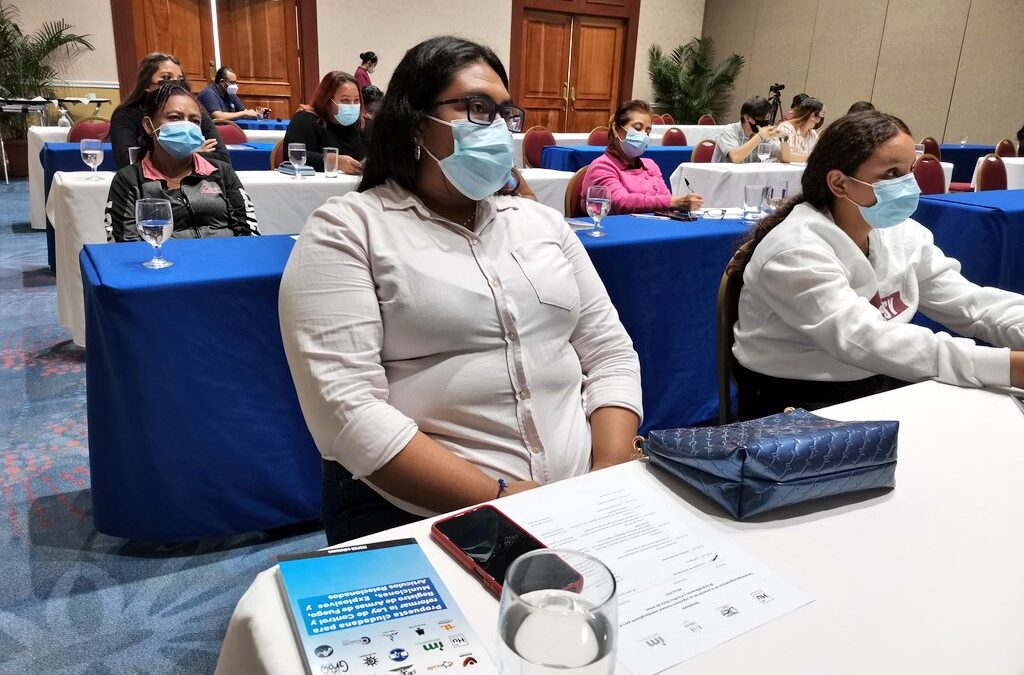On 26 November, UNLIREC participated virtually in the Forum “Getting to know experiences in the creation of a national interdisciplinary body for the control of the proliferation and illicit trafficking of arms”, organised by the Foundation of Studies for the Application of Law (FESPAD) in the framework of the “Humanium Metal” Initiative in El Salvador.
The aim of this Forum was to promote discussion based on the exchange of experiences from countries in the region on the creation of national mechanisms for arms control, as well as to address the need and importance of disarmament.
In order to provide context on the importance of establishing this type of mechanism, also known as National Commissions, UNLIREC made a presentation highlighting the main characteristics, functions and composition of this type of Commission in accordance with the international framework on arms control.

The United Nations Plan of Action to Prevent, Combat and Eradicate the Illicit Trafficking of Small and Light Arms in all its Aspects (PoA, 2001) calls on States to implement a number of measures to address this scourge. At the national level, it recommends, among other measures, to “establish or appoint, as appropriate, national coordinating agencies or bodies and institutional infrastructure responsible for policy guidance, research and monitoring of efforts to prevent, combat and eradicate the illicit trade in SALW in all its aspects”.
As part of the agenda, presenters from the Educational Institute for Sustainable Development (IEPADES) and the Arias Foundation, shared experiences related to the creation and implementation of these types of inter-institutional commissions in Guatemala and Costa Rica. Similarly, FESPAD presented on the problem of firearms in El Salvador and the importance of advancing in the creation of this type of organisation to strengthen policies to counteract the scourges of the proliferation and illicit trafficking of firearms.

This forum was attended by representatives of national institutions from the security and justice sectors, civil society organisations, community leaders and the general public.

